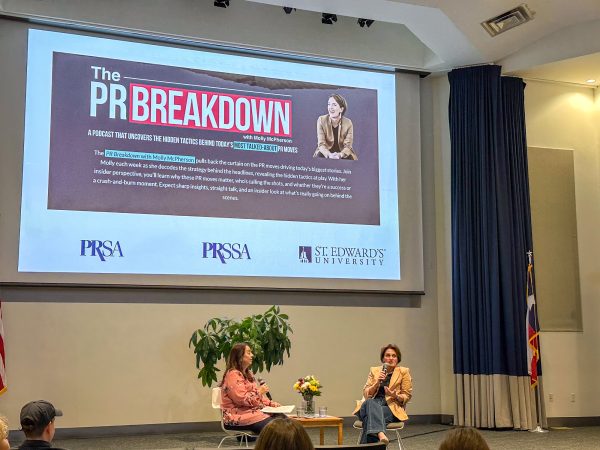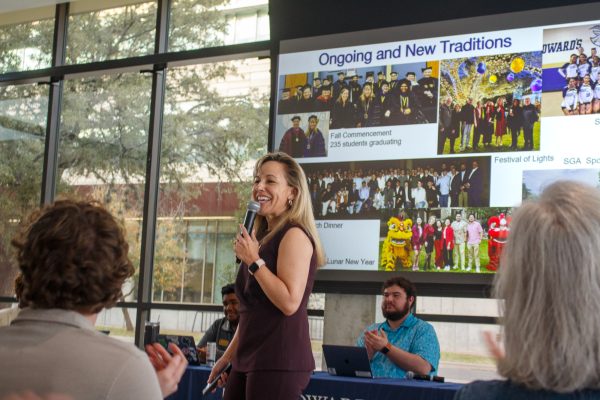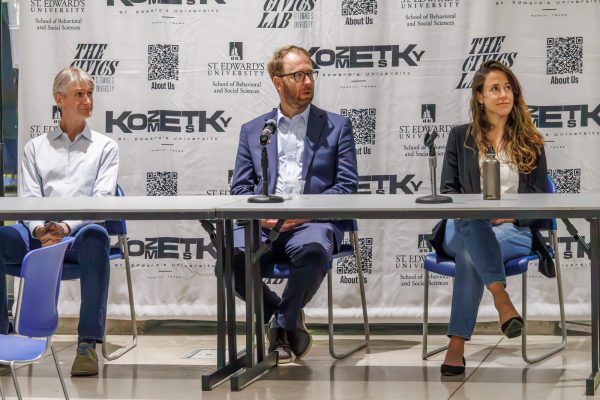10CULF
The St. Edward’s University faculty has begun the process of general education renewal, a routine every 10 years that is meant to keep up with progressive education standards.
There have been many speculations from students as to how this may affect their college careers and what they would like faculty to consider.
Sophomore Daniel Perez believes that there should more variety in CULF classes and options that can relate to someone’s major. Perez also highlighted a conflict that many students face — there are too many CULF classes already.
“I could have taken another science class that would help my major instead of a CULF class,” Perez said. “So for me, not having any of it would have helped a lot.”
The point of general education courses is to allow students to make the most of their majors while also helping them to develop critical and global perspectives in problem solving.
According to the American Association of Colleges and Universities, the most efficient high-impact educational practices are researched in several schools and tested every so often. St. Edwards’s follows this doctrine to provide the best education possible.
The Director of General Education Cory Lock said these practices are applied in both Capstone and CULF courses to answer the question, “What can educators do to help students learn the most?”
These practices are in line with the University Essential Learning Outcomes which strives for student acquisition of knowledge of liberal arts and sciences, intellectual and applied skills and personal and social responsibility.
The objective of the forum is not to cut core classes, but instead to redefine general education classes to better achieve St. Edward’s goals and to be more flexible for students.
The main goal is to shorten the required CULF and Capstone hours for all students, yet still manage to provide material that relates to the university’s values.
Todd Onderdonk, director of the Capstone program, is one of the key members that facilitates the renewal process. Onderdonk advocates for shortening the general education requirements to 40 hours or less.
“The whole point is to create space so students can have a customized experience,” Onderdonk said.
Psychology Professor Delia Kothmann Paskos agrees that a student’s experience should be customized.
“Students need more opportunity for electives to allow students to simply do what they want to do,” Paskos said.
The hope is that students will have the opportunity to explore more career paths if they have more flexibility with classes.
Since most classes will be either combined or reshaped, the same professors will probably be teaching these new classes. While some faculty members are concerned that there will be less emphasis on reading and writing, Onderdonk assures that there will be “new, exciting classes to come.”
All changes, if any, will not affect any of the current students or upcoming freshmen until the class of 2022.
The process is at its beginning stage with discussion among chosen faculty. Next January, the discussion will expand to focus groups consisting of current students of all levels, faculty members and alumni.
“We will ask students what makes St. Ed’s education distinctive? Or what you like the most? What would you like to change?” Lock said.
Follow Delfina on Twitter for more!






